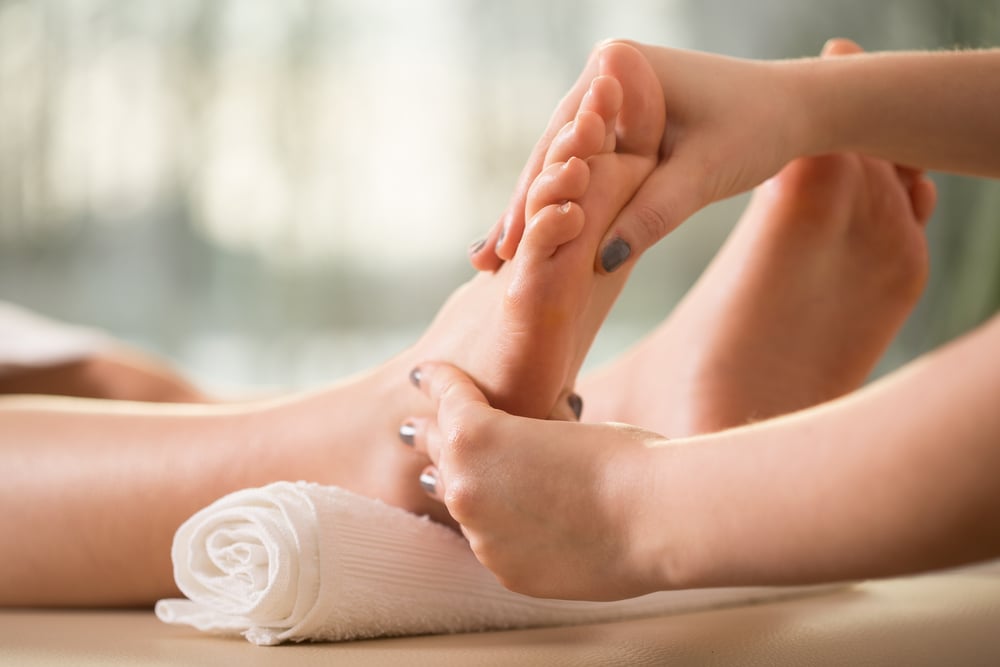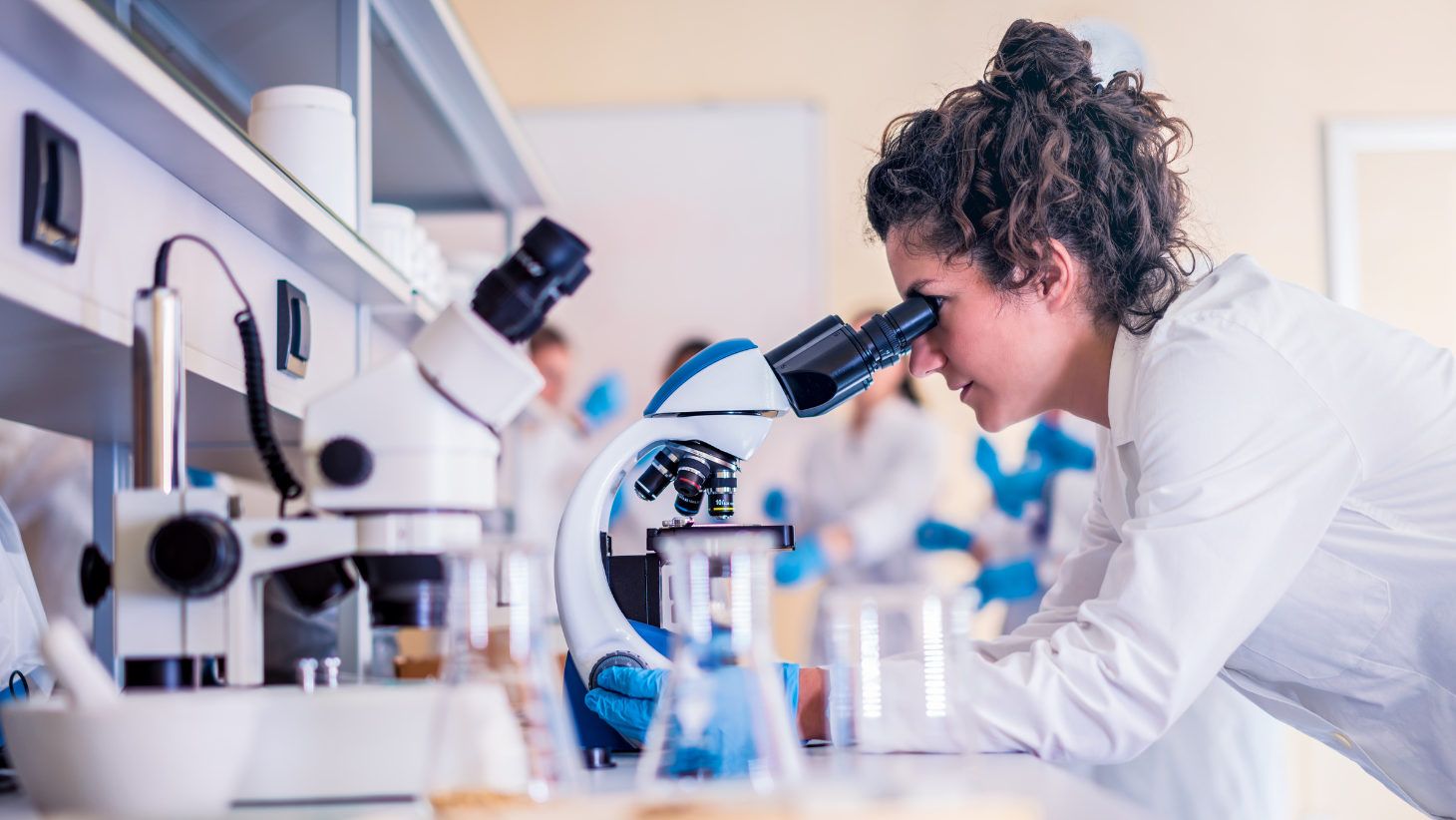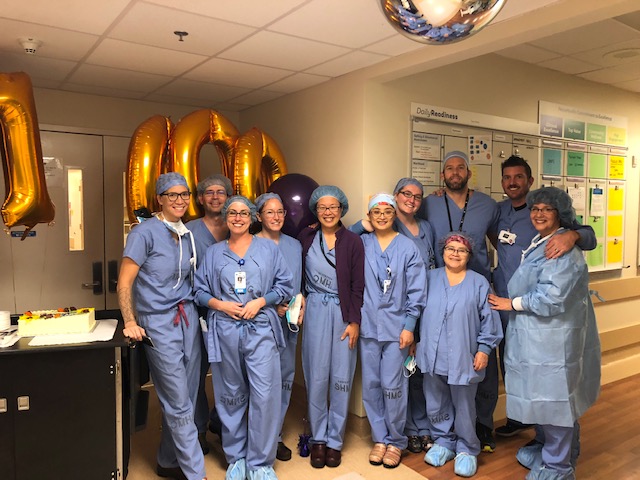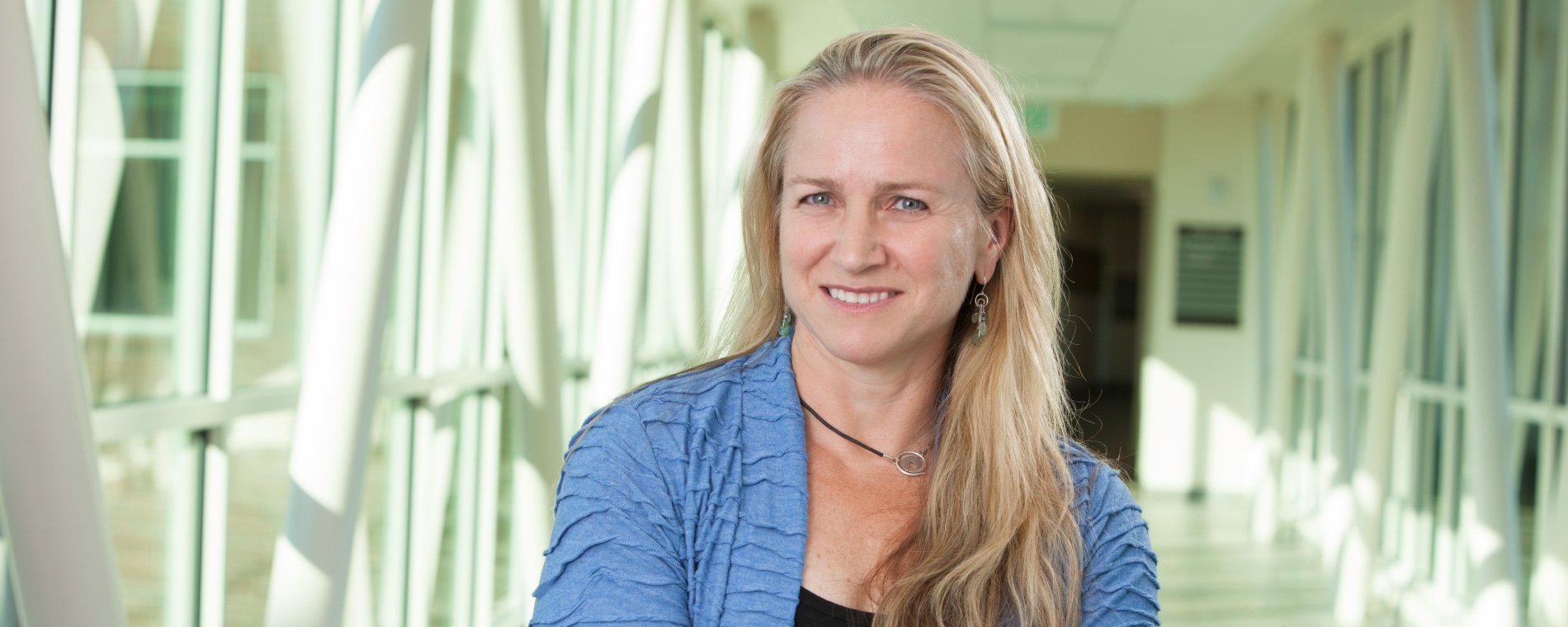Every six weeks, Shari Pimental comes to Willamette Valley Cancer Institute for a checkup, following treatment. At her most-recent visit, she also received a massage from volunteer, licensed massage therapist Hope Birrell.
“It just helps me completely relax and takes my mind off everything,” says Shari, who was diagnosed with ovarian cancer in February 2016 and underwent 18 weeks of chemotherapy.
“When you’re going through treatment, you’re just thinking about fighting and getting better. There’s really not much that exists outside of that,” she says.
Cancer can cause stress and worry, in addition to affecting the body with side effects like nausea and fatigue. Massage helps patients to relax.
“When you’re in connection with someone, it gives your mind the chance to reset and stop spinning its wheels,” says Hope, who has volunteered to provide patient massages at WVCI for several months.
While Hope massages Shari, Reiki practitioner Dannielle Smith works with patient Bonnie Pennoyer.
“Reiki is a technique from Japan, and it promotes healing, relaxation and stress release. It’s a light-hands technique, or no hands. It’s energy work,” Danielle explains. “When I’m done, the patient feels very grounded and balanced.”
To watch Dannielle administer the Reiki technique—she gently lays her hands on Bonnie’s head, neck and shoulders—it doesn’t appear anything is happening. But Bonnie says what you can’t see, she feels.
“Just with touch, she hit so many spots that I needed her to. There’s an energy exchange, but I also felt heat. It was wonderful,” Bonnie says.
Licensed massage therapist Jan Locke has been bringing skilled volunteers to WVCI to work with patients for about 10 years. Through the Continuing Education Program at Lane Community College, Jan teaches a class called the Cancer Center Experience, where she instructs LMTs and Reiki practitioners how to tailor their techniques for people whose bodies have been compromised by illness.
“I teach them how to go slower, to be a little more still and to not focus into the muscle, because we’re not actually moving venous blood flow, we’re not actually trying to affect issue. We’re really trying to bring comfort and support to people who are going through a tough time,” Jan says.
“Whether you have a medical diagnosis or you’ve had a bad day, touch is powerful,” Hope says. “It’s what brings us back to ourselves. Touch is what says, ‘There is another human being that sees you, feels you and cares about you.'”
For Danielle, being able to volunteer her time by helping cancer patients is extra special. When her mother was diagnosed with esophageal cancer in 2006, she received treatment at Willamette Valley Cancer Institute.
“I feel a connection to my mom when I’m here. I know she appreciates that I’m doing something to help other patients. It’s truly a rewarding experience.”



